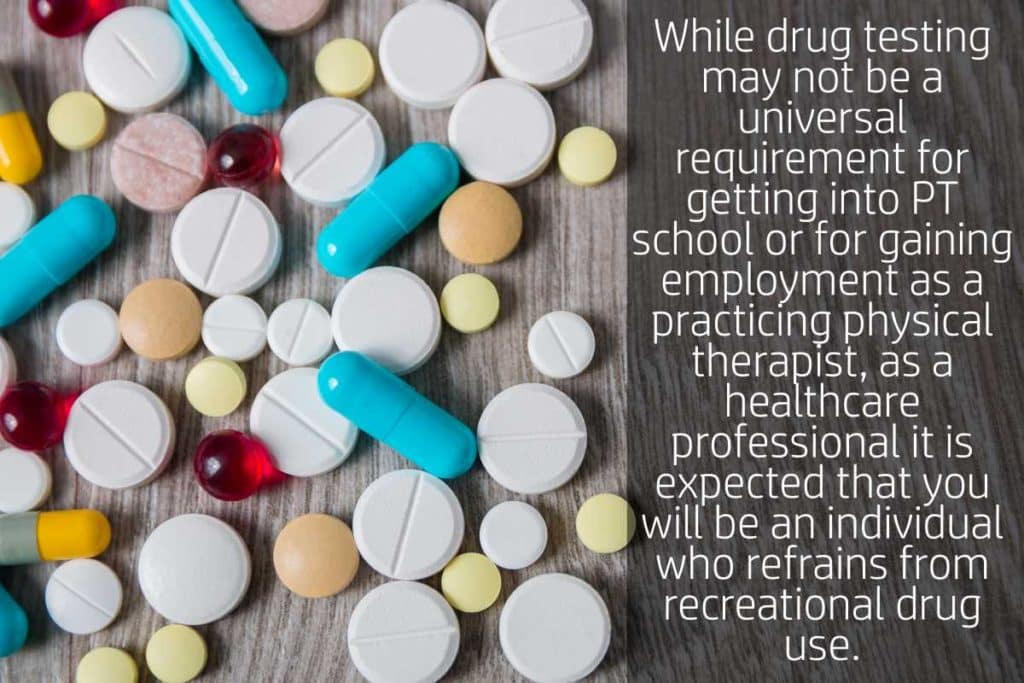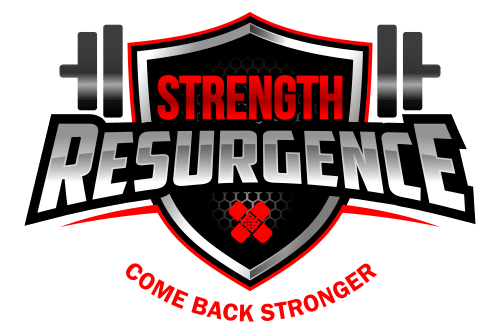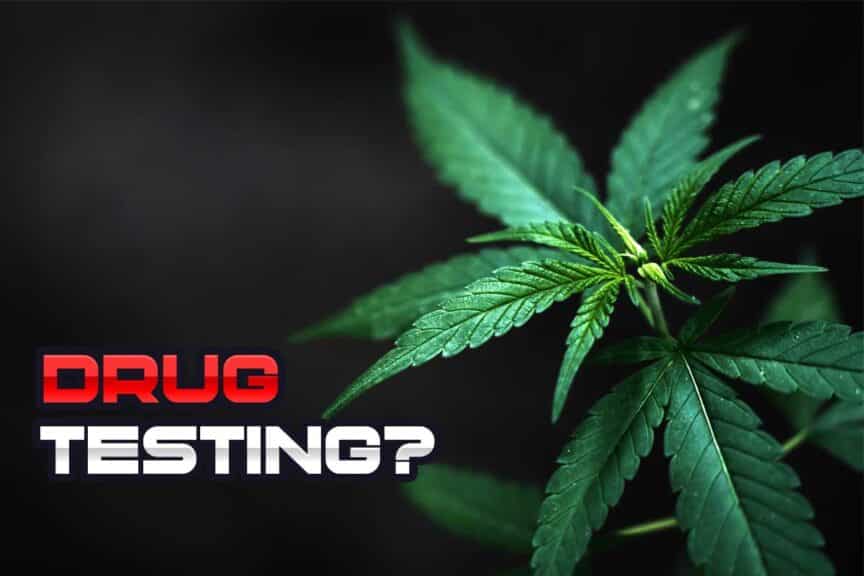I’ve seen the question of drug testing for physical therapists and physical therapy students makings its rounds on the internet. It seems that individuals who are considering PT school often want to know if drug testing is a requirement to obtain entry or if it’s required at any other point in their career. Hopefully this post will sufficiently answer this question.
While getting drug tested is typically not a requirement to get into PT school, drug tests can be required by a PT company/clinic before a student can begin their clinical rotation at a respective placement. It may also be a requirement for a licensed physical therapist to get drug tested before they can officially begin practice at a certain facility.

Why do some facilities drug test?
Drug testing for physical therapists is not a universal mandate. When it is mandated, it’s typically seen more so in facilities where therapists and other healthcare workers treat vulnerable or more compromised patients, such as in hospitals and skilled nursing facilities. Private outpatient-based clinics tend not to drug test nearly as often, but it can still be required depending on the individual company’s policies.
Drug testing before employment can begin is in place for healthcare workers across a variety of settings as a means to keep patients and other vulnerable populations safe. Aside from drug use having potentially deleterious effects on your own body or other areas of your personal life, drug use can affect your professional behaviour and performance.
As a healthcare worker, any alterations to your physical and/or cognitive functioning (such as task performance and/or decision making) can compromise the safety and well-being of your patients or even put them in direct danger. A positive drug test signifies to any company looking to employ you that you are using illegal substances to alter your physical and/or cognitive behavior and that there could be a chance that this altered state takes place while you’re working, whether you intend it to or not.
Like it or not, that’s how it is. Even if you feel like you use recreational drugs in a responsible manner, the company/facility will not let you be a part of their operations as a healthcare worker if you fail a drug test. Patient safety is top priority to every company, and having any compromise to their well-being opens the facility up for major legal and liability issues.
What happens if your drug test is positive?
As a student
If you test positive for any banned substance, you will not be permitted to be involved with the facility/company that mandates the drug test. If you’re a student, this means that you will not be able to complete your mandated clinical rotation at this facility/company. This scenario in and of itself is catastrophic as a new clinical arrangement would need to be made. Arranging for a new placement can take a lot of time and effort and could result in delaying your graduation.
Depending on the policies in place with your school, a failed drug test could also result in other disciplinary action or even dismissal from your program. Landing yourself in academic hot water because of a failed drug test could potentially mar your PT career before it even officially begins.
As a licensed physical therapist
If you’re a fully licensed physical therapist and are seeking employment with a facility that requires a drug screening test, failure of the test will result in you being refused employment with the facility. This could be devastating if you really had your heart set on a particular place for employment
Once employed, do PT clinics and facilities perform random drug testing?
While pre-employment drug testing/screening is most commonly performed, there could always be the potential for a facility to perform random drug testing at any point during your employment.
Now, personally I have never really heard of this taking place, as I have many PT colleagues and healthcare professionals that work at a variety of clinical settings. This is not to say that it does not happen, but based on my own knowledge, it seems to be rather uncommon. If it were to occur, I would imagine it to be more in the inpatient-based settings such as hospitals, skilled nursing facilities, etc. I would expect to to be very rarely performed in private, outpatient-based facilities.
Concluding remarks
As a healthcare professional, its expected that you are someone who will refrain from recreational drug use. If a substance is considered illegal/illicit or banned within your local state (or at the federal level), staying away from it is the right move to make in terms of doing so for professional reasons.
I would contend that it’s also the right move to make for personal reasons as well, however I am not here to preach about decisions that affect your personal life.
Speaking purely in terms of a professional standpoint, refraining from drug use ensures that patients and others whom you interact with will receive your best professional judgement and skills, which ensures maximal safety at all times.
If you’re considering PT school but have a history of drug problems, you’ll need to make sure that you have fully rectified this issue before pursuing school; while you can be accepted into a program without drug screening, you may be screened for any or all of your clinical rotations. Your future company of employment may also choose to screen you.
So, your best bet is to stay away from drugs if you’re looking to become a physical therapist. You’ll be better off for it from a professional stand point and likely from a personal standpoint as well.
Related articles:
- A Career in Physical Therapy: Here’s How to Know if it’s Right for You
- Vaccination Requirements for PT School: Which Vaccines do You Need?
- What is Physical Therapy School Like? Answers to Commonly Asked Questions

Hi! I’m Jim Wittstrom, PT, DPT, CSCS, Pn1.
I am a physical therapist who is passionate about all things pertaining to strength & conditioning, human movement, injury prevention and rehabilitation. I created StrengthResurgence.com in order to help others become stronger and healthier. I also love helping aspiring students and therapists fulfill their dreams of becoming successful in school and within their clinical PT practice. Thanks for checking out my site!

